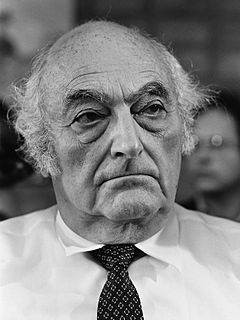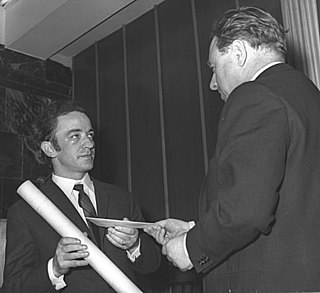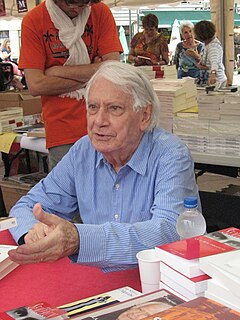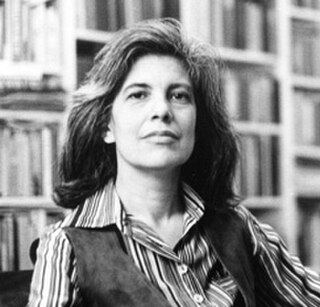 W
WAntónio Lobo Antunes, GCSE is a Portuguese novelist and medical doctor. He has been named as a contender for the Nobel Prize in Literature.
 W
WSimone Lucie Ernestine Marie Bertrand de Beauvoir was a French writer, intellectual, existentialist philosopher, political activist, feminist and social theorist. Though she did not consider herself a philosopher, she had a significant influence on both feminist existentialism and feminist theory.
 W
WSir Isaiah Berlin was a Latvian-born British social and political theorist, philosopher and historian of ideas. Although he became increasingly averse to writing for publication, his improvised lectures and talks were sometimes recorded and transcribed, and many of his spoken words were converted into published essays and books, both by himself and by others, especially his principal editor from 1974, Henry Hardy.
 W
WJorge Francisco Isidoro Luis Borges Acevedo was an Argentine short-story writer, essayist, poet and translator, and a key figure in Spanish-language and universal literature. His best-known books, Ficciones (Fictions) and El Aleph, published in the 1940s, are compilations of short stories interconnected by common themes, including dreams, labyrinths, philosophers, libraries, mirrors, fictional writers, and mythology. Borges' works have contributed to philosophical literature and the fantasy genre, and have been considered by some critics to mark the beginning of the magic realist movement in 20th century Latin American literature. His late poems converse with such cultural figures as Spinoza, Camões, and Virgil.
 W
WJohn Maxwell Coetzee is a South African-born novelist, essayist, linguist, translator and recipient of the 2003 Nobel Prize in Literature. He is one of the most critically acclaimed and decorated authors in the English language. He has won the Booker Prize (twice), the CNA Prize (thrice), the Jerusalem Prize, the Prix Femina étranger, and The Irish Times International Fiction Prize, and holds a number of other awards and honorary doctorates.
 W
WDonald Richard DeLillo is an American novelist, short story writer, playwright, screenwriter and essayist. His works have covered subjects as diverse as television, nuclear war, sports, the complexities of language, performance art, the Cold War, mathematics, the advent of the digital age, politics, economics, and global terrorism.
 W
WMax Rudolf Frisch was a Swiss playwright and novelist. Frisch's works focused on problems of identity, individuality, responsibility, morality, and political commitment. The use of irony is a significant feature of his post-war output. Frisch was one of the founders of Gruppe Olten. He was awarded the Neustadt International Prize for Literature in 1986.
 W
WHenry Graham Greene, professionally known as Graham Greene, was an English writer and journalist regarded by many as one of the leading English novelists of the 20th century. Combining literary acclaim with widespread popularity, Greene acquired a reputation early in his lifetime as a major writer, both of serious Catholic novels, and of thrillers. He was shortlisted, in 1966 and 1967, for the Nobel Prize for Literature. Through 67 years of writings, which included over 25 novels, he explored the ambivalent moral and political issues of the modern world, often through a Catholic perspective.
 W
WZbigniew Herbert was a Polish poet, essayist, drama writer and moralist. He is one of the best known and the most translated post-war Polish writers. While he was first published in the 1950s, soon after he voluntarily ceased submitting most of his works to official Polish government publications. He resumed publication in the 1980s, initially in the underground press. Since the 1960s, he was nominated several times for the Nobel Prize in literature. His books have been translated into 38 languages.
 W
WHelmut Flieg or Hellmuth Fliegel was a German writer, known by his pseudonym Stefan Heym. He lived in the United States between 1935 and 1952, before moving back to the part of his native Germany which was, from 1949 to 1990, the German Democratic Republic. He published works in English and German at home and abroad, and despite longstanding criticism of the GDR remained a committed socialist.
 W
WEugène Ionesco was a Romanian-French playwright who wrote mostly in French, and one of the foremost figures of the French Avant-garde theatre. Beyond ridiculing the most banal situations, Ionesco's plays depict the solitude and insignificance of human existence in a tangible way.
 W
WLeszek Kołakowski was a Polish philosopher and historian of ideas.
 W
WMilan Kundera is a Czech writer who went into exile in France in 1975, becoming a naturalised French citizen in 1981. Kundera's Czechoslovak citizenship was revoked in 1979. He was given a Czech citizenship in 2019. He "sees himself as a French writer and insists his work should be studied as French literature and classified as such in book stores".
 W
WIan Russell McEwan, is an English novelist and screenwriter. In 2008, The Times featured him on its list of "The 50 greatest British writers since 1945" and The Daily Telegraph ranked him number 19 in its list of the "100 most powerful people in British culture".
 W
WArthur Asher Miller was an American playwright and essayist in the 20th-century American theater. Among his most popular plays are All My Sons (1947), Death of a Salesman (1949), The Crucible (1953), and A View from the Bridge. He wrote several screenplays and was most noted for his work on The Misfits (1961). The drama Death of a Salesman has been numbered on the short list of finest American plays in the 20th century.
 W
WAntonio Muñoz Molina is a Spanish writer and, since 8 June 1995, a full member of the Royal Spanish Academy. In 2013 he received the Prince of Asturias Award for literature.
 W
WHaruki Murakami is a Japanese writer. His books and stories have been bestsellers in Japan as well as internationally, with his work being translated into 50 languages and selling millions of copies outside his native country. His work has received numerous awards, including the World Fantasy Award, the Frank O'Connor International Short Story Award, the Franz Kafka Prize, and the Jerusalem Prize.
 W
WSir Vidiadhar Surajprasad Naipaul, most commonly known as V. S. Naipaul, and informally, Vidia Naipaul, was a Trinidad and Tobago-born British writer of works of fiction and nonfiction in English. He is known for his comic early novels set in Trinidad, his bleaker novels of alienation in the wider world, and his vigilant chronicles of life and travels. He wrote in prose that was widely admired, but his views sometimes aroused controversy. He published more than thirty books over fifty years.
 W
WOctavio Paz Lozano was a Mexican poet and diplomat. For his body of work, he was awarded the 1981 Miguel de Cervantes Prize, the 1982 Neustadt International Prize for Literature, and the 1990 Nobel Prize in Literature.
 W
WBertrand Arthur William Russell, 3rd Earl Russell was a British polymath, philosopher, logician, mathematician, historian, writer, social critic, political activist, and Nobel laureate. Throughout his life, Russell considered himself a liberal, a socialist and a pacifist, although he also sometimes suggested that his sceptical nature had led him to feel that he had "never been any of these things, in any profound sense". Russell was born in Monmouthshire into one of the most prominent aristocratic families in the United Kingdom.
Ernesto Sabato was an Argentine novelist, essayist, painter and physicist. According to the BBC he "won some of the most prestigious prizes in Hispanic literature" and "became very influential in the literary world throughout Latin America". Upon his death El País dubbed him the "last classic writer in Argentine literature".
 W
WAndré Schwarz-Bart was a French novelist of Polish-Jewish origins.
 W
WJorge Semprún Maura was a Spanish writer and politician who lived in France most of his life and wrote primarily in French. From 1953 to 1962, during the dictatorship of Francisco Franco, Semprún lived clandestinely in Spain working as an organizer for the exiled Communist Party of Spain, but was expelled from the party in 1964. After the death of Franco and change to a democratic government, he served as Minister of Culture in Spain's socialist government from 1988 to 1991. He was a screenwriter for two successive films by the Greek director Costa-Gavras, Z (1969) and The Confession (1970), which dealt with the theme of persecution by governments. For his work on the films The War Is Over (1966) and Z (1969) Semprún was nominated for the Academy Award. In 1996, he became the first non-French author elected to the Académie Goncourt, which awards an annual literary prize.
Secondino Tranquilli, known by the pseudonym Ignazio Silone, was an Italian political leader, novelist, and short-story writer, world-famous during World War II for his powerful anti-Fascist novels. He was nominated for the Nobel prize for literature ten times.
 W
WSusan Sontag was an American writer, filmmaker, philosopher, teacher, and political activist. She mostly wrote essays, but also published novels; she published her first major work, the essay "Notes on 'Camp'", in 1964. Her best-known works include the critical works Against Interpretation (1966), Styles of Radical Will (1968), On Photography (1977), and Illness as Metaphor (1978), as well as the fictional works The Way We Live Now (1986), The Volcano Lover (1992), and In America (1999).
 W
WJorge Mario Pedro Vargas Llosa, 1st Marquis of Vargas Llosa, more commonly known as Mario Vargas Llosa, is a Peruvian writer, politician, journalist, essayist and college professor. Vargas Llosa is one of Latin America's most significant novelists and essayists, and one of the leading writers of his generation. Some critics consider him to have had a larger international impact and worldwide audience than any other writer of the Latin American Boom. In 2010 he won the Nobel Prize in Literature, "for his cartography of structures of power and his trenchant images of the individual's resistance, revolt, and defeat."